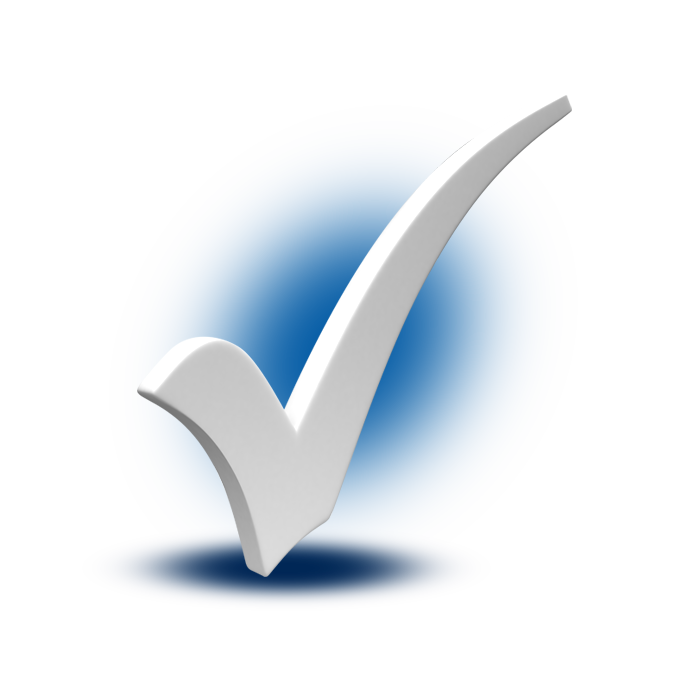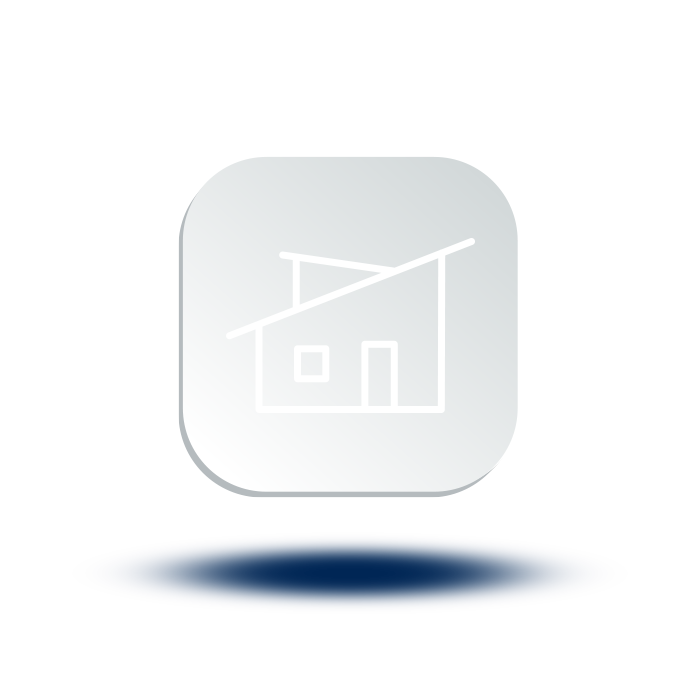First-Time Homebuyers
Have confidence as a first-time homebuyer
Finding the perfect first home can be nerve-wracking, especially if you're a first-time homebuyer. From choosing the perfect neighborhood and best schools, to calculating how much house and down payment you can afford, it can be tough to know where to start. Let RBFCU find the right loan to help meet your personal needs and goals.
To speak to the Mortgage Department, call 210-945-3300.
Buying a New Home: A Quick Start-to-Finish Guide
Download our easy guide to learn about getting a mortgage and buying a home. Topics include:
- Where should you start?
- What can you afford to buy?
- How's your credit score?
- Down payment and closing costs
- Understanding your mortgage payment
What types of mortgages should I consider?
Make your dreams of homeownership a reality
If you’re seeking a loan option with a low down payment or want to use gift funds, a Federal Housing Administration (FHA) loan may be the choice for you.
Help for our military and more
A Veterans Affairs (VA) loan can help you buy a home if you’re a veteran, service member or spouse.
Worry-free payment security
If you're concerned about interest rates, a fixed-rate mortgage will keep your payments the same — no matter how high rates may go.
Flexibility now, and in the future
If you plan to move or refinance in a few years, an adjustable-rate mortgage (ARM) could be the best option for you.
Let us walk you through the mortgage loan process
1. Get prepared
Buying a home is a big commitment and you’ll want your finances to be in good condition before you start the process to ensure the best possible outcome. Gather your financial information, like recent tax returns, financial statements and pay stubs; your loan application will let you know what financial information is necessary. You should also review your credit score, take a look at your debt-to-income ratio (DTI) and take other important steps to position yourself for receiving the best possible loan terms. Click the button below to read our document on “Maintaining Your Financial Status and Credit Score” for tips to help guide you through the process.
2. Decide what you can afford
3. Get pre-approved
Once you know how much home you can afford, complete the application for a pre-approval letter. The pre-approval will let sellers know that you are a qualified buyer who is prepared to make a home purchase.
4. Find your home
5. Complete paperwork
You’ll complete the application process you started with your pre-approval request by submitting your documents and continuing through the loan process. This may sound simple, but it can be a big undertaking, depending on your employment status, residency, etc.
6. Finalize your loan
Our Mortgage Lending Team will help you through each step of the loan process and make sure you know everything you need to know to close your loan with confidence.
Ready to apply for a loan? Here’s what you’ll need to complete the application:
- The amount you would like to borrow
- The number of years you want to finance your loan (term length)
- Your current employment and income information
- Your phone number and email
- Information for joint borrowers you plan to include on the mortgage loan (including date of birth, address, income and employment, Social Security number and contact information; if applicable)
- An idea of the total amount you would like for your loan and monthly payments
For a list of all the documents often required to complete your purchase, download our Mortgage Application Checklist.

Get your credit score purchase-ready
Coach Lea can help!
When preparing to purchase a home, it’s important to get your financial house in order. From reviewing your credit history to understanding financing options, the process can feel overwhelming.
Don’t worry, Coach Lea is here to help! Lea is a Virtual Financial Coach that offers free financial advice 24/7 on things like cash flow, debt repayment and strengthening credit.
And if you think you may want to dig in deeper, the financial experts at GreenPath Financial Wellness are a call away. GreenPath is a trusted non-profit that has been helping people lead financially healthy lives for more than 60 years.
What do you take into consideration when reviewing my loan application?
Credit and payment history
Reviewing these items gives us a snapshot into debts you have incurred and your ability to manage them.
Employment
Reviewing your employment will give us a snapshot of how well positioned you are to make loan payments.
Debt-to-income ratio
By evaluating your income versus your debts, we can get an idea of what loan amount you can comfortably repay.
Down payment
The amount of cash you have available to put toward your home purchase may impact the type of loan you are able to secure.
Mortgages from A to Z
Here are some of the terms that you may hear during the homebuying process.
-
Appraisal
Appraisals estimate the market value of a home based on comparisons with similar properties. Unlike a home inspection, the appraisal does not produce a detailed assessment of the systems or structure of the property.
-
Closing
The final step in taking ownership of a purchased property. At the closing or settlement, you sign legal documents, make your own down payment and pay closing costs, at which point ownership of the property is legally transferred from the seller to the buyer.
-
Discount Points
One discount point is 1% of the loan amount. These points represent interest paid up front to the lender, rather than over the life of the loan. Typically, the higher the interest rate, the lower the discount points, and vice versa.
-
Earnest Money
A portion of the down payment that is placed in escrow with the real estate agent when the sales contract is accepted. The earnest money deposit indicates the buyer’s firm intention to purchase the property in question. If the contract is accepted by the seller, these funds will go towards the purchaser's down payment and closing costs.
-
Private Mortgage Insurance (PMI)
If you pay less than 20% down, you’ll be asked to pay for PMI, which protects the lender in case you default on your loan. PMI is usually included in your monthly mortgage payment; the fee can be eliminated and your monthly mortgage payment reduced once you achieve 20% equity in your home. Mortgage insurance also reimburses the lender or investor for losses incurred during a foreclosure.
-
Total Debt-to-Income Ratio
In traditional mortgage underwriting, the total debt-to-income ratio is used to calculate how large the monthly payments on housing expenses and other debts (like student and car loans, credit card debt, etc.) should be, based on gross monthly income. For example, if a mortgage product has a total debt-to-income ratio of 38%, the borrower’s housing expenses plus other debts should not exceed 38% of their gross monthly income.
-
What are the different types of mortgage loans?
The most common mortgage loans are conventional, Federal Housing Administration (FHA) and Veterans Affairs (VA) loans.
Conventional loans are available to all borrowers and are ideal to those with good or excellent credit. This type of loan typically follows conservative guidelines for credit scores, minimum down payments and debt-to-income ratios.
FHA loans are available to all borrowers but allow for a down payment as low as 3.5% of the purchase price. Monthly mortgage insurance is required for all loans with a down payment that is less than 20% of the purchase price.
VA loans are available to military service members, veterans and surviving spouses. Borrowers can receive 100% financing and a down payment is not required.
-
What is the difference between a conventional mortgage and an FHA mortgage?
FHA and conventional mortgages each have their advantages; however, their qualification requirements differ. Conventional loans typically follow conservative guidelines for credit scores, minimum down payments and debt-to-income ratios. FHA loans are insured by the U.S. Department of Housing and Urban Development (HUD). These types of loans are ideal for first-time homebuyers seeking a loan with lower down payments. FHA loans also provide homebuying opportunities for individuals with higher debt-to-income ratios. A mortgage loan officer can help you decide which option is best for you. For more information, visit the RBFCU Mortgage Purchase page.
-
How much money do I need for a down payment?
The amount needed for a down payment depends on the mortgage loan you select. We offer a variety of loans, including as little as zero down and as much as 20% down — based on your credit score and loan selected. A general rule of thumb is the better the credit score, the less money you may need. Use our mortgage calculators to help you determine how much you may need to purchase a home.
-
Are there any special deals for first-time homebuyers through RBFCU?
No. However, RBFCU offers Federal Housing Administration (FHA) loans. This type of loan is ideal for first-time homebuyers seeking a loan with lower down payments and fixed rate loan options. FHA loans are also a great consideration for those who are looking to finance with as little cash down as possible.
-
How soon will someone from RBFCU contact me after I've submitted my mortgage application?
Once you submit your mortgage loan application for review, RBFCU will contact you within 24 hours, unless it’s a weekend application.
Still have mortgage questions?
Loans subject to credit approval. Rates and terms subject to change without notice. Mortgage loans available only on property in Texas. NMLS# 583215.


